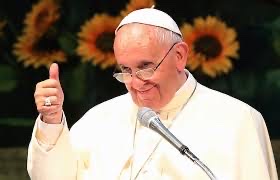When Sedevacantists violate the Very Canon Law They Pretend to Defend
The Kurgan claims to be a bold defender of the “true faith” and the “true Church.” He proclaims himself a loyal son of tradition, a champion of canon law, and a fierce opponent of the supposed apostasy ushered in by Vatican II. He insists that every pope since 1958 has been invalid, every bishop suspect, and every priest ordained under the new rites a fraud.
But for someone who claims to stand on the firm ground of canon law, The Kurgan has built his house on sand.
Let’s begin with his book, "Reclaiming the Catholic Church"—the one in which he confidently proclaims who is and is not a valid pope, who is excommunicated, and who has automatically forfeited office under Canon 188.4. The irony? His very act of publishing that book is a violation of the canon law he claims to defend.
Under the 1917 Code of Canon Law, which The Kurgan treats as his juridical gospel, Canon 1385 §1, nos. 2 and 3 prohibit laypersons from publishing books on sacred theology, Church history, canon law, or anything touching on religion without prior ecclesiastical approval. That means an imprimatur, a nihil obstat, or at the very least, express permission from a competent Church authority.
Does The Kurgan have such permission? Of course not. He rejects the entire visible hierarchy as invalid. He has no bishop, no superior, no canonical mission, and no ecclesiastical oversight. He answers to no one but himself—and perhaps a handful of like-minded online zealots. And yet he dares to set himself up as judge and jury over the visible Church, while standing in flagrant violation of the very legal code he wields against her.
But the contradiction doesn’t end there.
Canon 1399 (1917) further forbids books that promote schism, attack the hierarchy of the Church, or encourage contempt for ecclesiastical authority. If ever a book qualified, it’s The Kurgan’s. His entire project is built on undermining the visibility, unity, and authority of the Church. He doesn’t just “question” Vatican II or lament bad bishops. He declares the whole post-1958 Church a fraud, denounces her sacraments as invalid, and calls the pope an anti-pope—all from the comfort of his keyboard.
The result? A layman with no canonical mission, no imprimatur, and no jurisdiction, issuing theological declarations in direct defiance of the canon law he invokes to condemn others.
This isn’t mere hypocrisy. This is theological vigilantism—a rogue layman weaponizing canon law against the Church, all while breaking it himself. He accuses the Magisterium of lawlessness while sawing through the branch of canonical authority on which he claims to sit.
To borrow from Our Lord: “They bind heavy burdens, hard to bear, and lay them on men's shoulders; but they themselves will not move them with their finger” (Matt 23:4). The Kurgan imposes his own private tribunal over the entire Church, all while refusing to submit to the discipline he demands of others.
And in case he wants to invoke some sede-friendly reinterpretation to justify his disobedience, we should remind him: canon law doesn’t disappear just because you’ve decided the Church has apostatized. If anything, the burden of canonical fidelity is higher for those claiming to defend tradition. But The Kurgan doesn’t follow canon law. He cherry-picks it—quoting it when convenient, ignoring it when inconvenient.
His book is more than schismatic in content. It is illicit in origin. Illegally published, canonically forbidden, and doctrinally poisonous. And it’s not the Church that says so. It’s the very code of law The Kurgan pretends to uphold.

Comments
Post a Comment